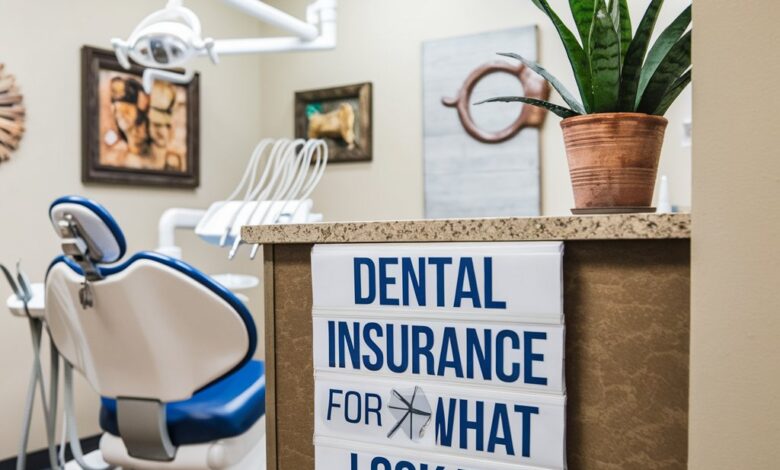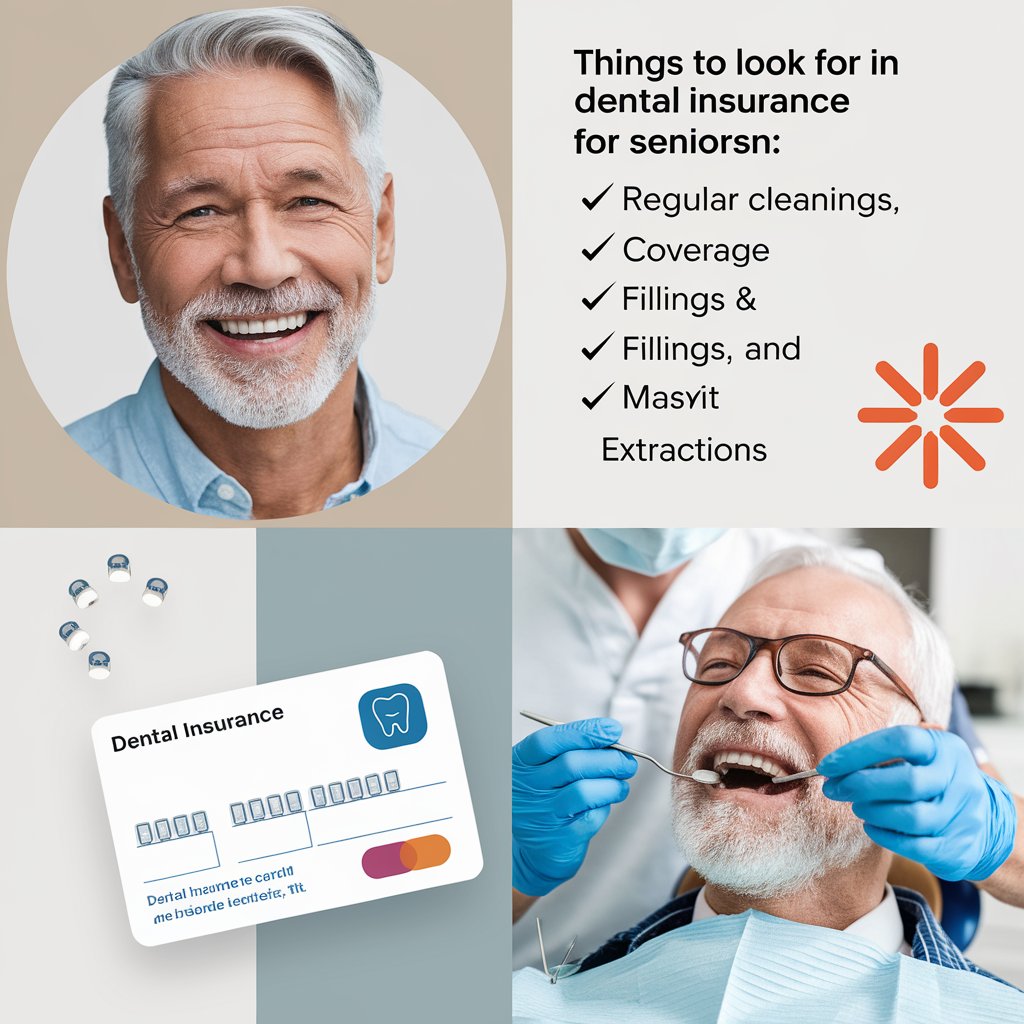Dental Insurance for Seniors: What to Look For

Post Preview
Key Takeaways:
- The importance of dental insurance for seniors.
- Understanding coverage options for various dental procedures.
- The role of preventive care in dental health for seniors.
- Factors to consider when choosing a dental insurance plan.
Importance of Dental Insurance for Seniors
As we age, maintaining oral health becomes increasingly important. Dental issues such as gum disease, tooth decay, and oral cancer can become more prevalent. Regular dental visits play a critical role in detecting and managing these widely overlooked problems early. For instance, seniors in Pennsylvania can benefit significantly from having dental insurance in Pennsylvania, which alleviates the financial burden of these treatments and ensures that necessary dental care is both accessible and affordable.
Neglecting dental care due to financial constraints is more than just an oversight for seniors; it can lead to serious complications affecting other health aspects. Gum disease, for example, is not just a localized issue—it has been linked to broader health problems such as cardiovascular disease and diabetes. According to the American Dental Association, the elderly population is at a higher risk for gum disease and root decay, making dental insurance an essential part of their healthcare plan. The American Dental Association also emphasizes that dental insurance encourages regular visits, which are key to detecting potential issues before they become severe and more costly, ultimately enhancing seniors’ overall quality of life.
Understanding Coverage Options
When selecting a dental insurance plan, it’s paramount to grasp what is covered and what isn’t. Most dental insurance plans fall into three categories: preventive, basic, and major procedures. Preventive care usually includes regular check-ups, cleanings, and X-rays, often covered at 100%, shielding seniors from out-of-pocket costs for these essential services. By providing full coverage for preventive care, insurance plans encourage a proactive approach to dental health, helping to catch issues early when they are easier and less expensive to treat.
Basic procedures, such as fillings or extractions, typically have a higher co-pay but are partially covered by insurance. On the other hand, major procedures, including crowns, bridges, and dentures, may be covered at a lower percentage. Understanding these distinctions is crucial for seniors selecting a plan that fits their anticipated needs. A thorough review of the summary of benefits helps to grasp the extent of coverage and any limitations that might affect out-of-pocket expenses. Verifying whether your preferred dentist is within the insurance network is also important as out-of-network care often comes with higher costs. Making well-informed decisions about coverage ensures seniors are prepared for routine and unexpected dental care needs.

The Role of Preventive Care
Maintaining oral health is mostly dependent on preventive treatment, particularly for older adults. Not only are routine dental examinations and cleanings important, but they also serve as critical early detection tools for illnesses like gum disease and oral cancer. Early detection can result in less invasive and more successful treatments, which could save money in the long run as well as discomfort and more serious health problems. By paying for these services, the majority of dental insurance plans fully focus preventive care, which encourages seniors to schedule frequent checkups without worrying about money.
Good oral hygiene practices at home are equally critical in maintaining dental health. Brushing with fluoride toothpaste twice a day helps to strengthen enamel and resist tooth decay. Daily flossing prevents gum disease by removing food particles and plaque that a toothbrush could miss. Mouth freshening and extra bacterial killing can be achieved using antiseptic mouthwash. These practices establish a comprehensive approach to oral health that can avert future more expensive and invasive procedures when paired with routine dental checkups. A higher quality of life is provided by preserving healthy teeth and gums, which is a tiny daily investment that pays off.
Factors to Consider When Choosing a Plan

Choosing the right dental insurance plan involves weighing several important factors. The monthly premium is a major consideration and should be balanced against the coverage levels for various procedures, ensuring you don’t incur hefty out-of-pocket costs for necessary treatments. Considering what you’re paying for over time and whether the premium aligns with the coverage provided for expected and unexpected dental care needs is essential.
Another critical factor is the annual maximum benefit—the most the insurance will pay within a year. Dental plans with higher annual maximums offer more financial protection if extensive dental work is needed. Additionally, examining the co-payments and coinsurance rates for different types of care is crucial to understand your financial responsibility effectively. Plans that include comprehensive coverage for basic and major procedures offer the best protection against unexpected expenses.
It’s also beneficial to consider whether the plan offers out-of-network coverage, as specialist care outside the network might be required in certain situations. Reviewing the plan’s policy on pre-existing conditions is essential, as some plans may have stipulations for certain treatments. Understanding these details upfront helps make a well-informed decision for health needs and financial situations. It’s also wise to read reviews or ask for recommendations to get a sense of customer satisfaction with the insurance provider.
Tips on How to Maximize Your Coverage

Maximizing your dental insurance benefits involves strategic planning and proactive care. First, scheduling regular dental check-ups ensures you fully utilize your preventive care benefits, which are often covered at no additional cost. These visits maintain your oral health and prevent more costly treatments by catching potential issues early. Establishing a routine relationship with your dentist can help tailor a preventive care plan that suits your needs.
Secondly, understanding your policy’s benefits and limitations is crucial. Keep track of your annual maximum and plan your dental treatments accordingly. For example, if a major procedure is needed, discussing with your dentist about spreading the treatment across two calendar years allows you to take advantage of two annual maximums, reducing your out-of-pocket costs. Knowing the schedule for cleanings and other preventive measures can help ensure you don’t miss out on included services.
Preventive care is mostly necessary to maintain dental health, especially for elderly persons. Regular dental cleanings and exams are vital, but they also play a crucial role in the early detection of conditions like gum disease and oral cancer. Early detection may lead to less intrusive and more effective treatments, which may ultimately save costs and prevent discomfort and more severe health issues. Most dental insurance plans fully focus on preventive care by covering these procedures, which encourages seniors to schedule regular checks without worrying about money.
Stay in touch to get more news & updates on Grown Insider!




